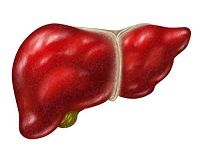Article
Alarm over Cancer Recurrence after DAA Treatment
Author(s):
Direct-acting antivirals can cure hepatitis C. But in patients who had also had liver cancer, the drugs appear to result in an alarmingly high rate of cancer recurrence.

Despite all the good news about direct-acting antivirals for treatment of hepatitis C virus (HCV) infection researchers from Italy have sounded a note of alarm.
In a study fast-tracked for publication today in the Journal of Hepatology, a research team found that patients with a prior history of hepatocellular carcinoma (HCC) and treated with DAAs are having a higher than expected rate of cancer recurrence. Further, those cancers came back within a few months.
The recurrence rate in some subgroups has been over 40%.
In their conclusion in the journal article, the researchers said “Our data show an unexpected high rate and pattern of tumor recurrence coinciding with HCV clearance and, though based in a very small cohort of patients, should be taken as a note of caution and prime a large scale assessment that exceeds the individual investigators capacity”.
The study authors believe the recurrences could be a result of having a weakened immune system following DAA therapy.
“Something is going here,” said Jordi Bruix a professor at the Barcelona Clinic Liver Cancer Group, Hospital Clinic Barcelona, discussing the alarming findings in a session today at the International Liver Congress in Barcelona, “But nothing in life is without risk.”
HCC is the most common form of liver cancer worldwide.
According to the World Health Organization, liver cancer accounts for 662,000 deaths and is the third leading cause of cancer-related death, exceeded only by cancer of the lung and stomach.
Approximately 75% to 80% of cases of HCC occur in Asia, however, there is considerable variation within continents.
The overwhelming majority of HCC cases occur in patients with chronic liver disease, where approximately 80% to 90% have cirrhosis and most of the remainder have moderate to advanced fibrosis.
“Interferon-free regimens in particular are now being studied in many patient cohorts including those with other pre-existing disease such as HCC. Our data, even though from a relatively small number of patients, are so striking that it clearly signals we must exercise caution in the use of these agents in such patients, at least until data from further large-scale assessments are available,” Bruix said.
The study included 103 patients across four hospitals who had HCV infection and a prior history of HCC. Of these, 58 patients had achieved complete response after treatment of their cancer and met inclusion criteria for the study. Baseline characteristics, laboratory and radiologic tumor response were registered in all patients before starting antiviral therapy and during the follow-up, according to the clinical practice policy.
After a median follow-up of 57 months. Three patients died and 16 (27.6%) developed tumor recurrence.
Median time between antiviral treatment and detection of recurrence was 3.5 months.
"It is important that hepatologists continue to weigh up the risks and the benefits of DAA treatment for each individual patient, as these drugs are still relatively new.," said Massimo Colombo, Professor of Gastroenterology at the University of Milan, Italy and former Editor-in-Chief of the Journal of Hepatology.




